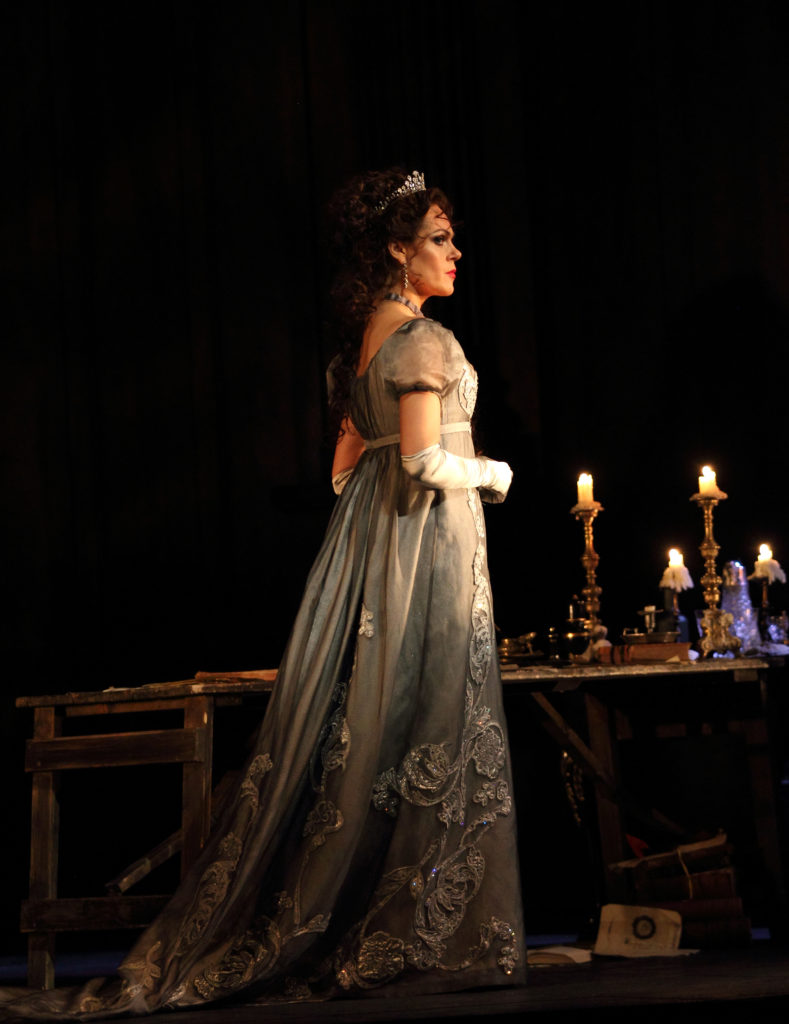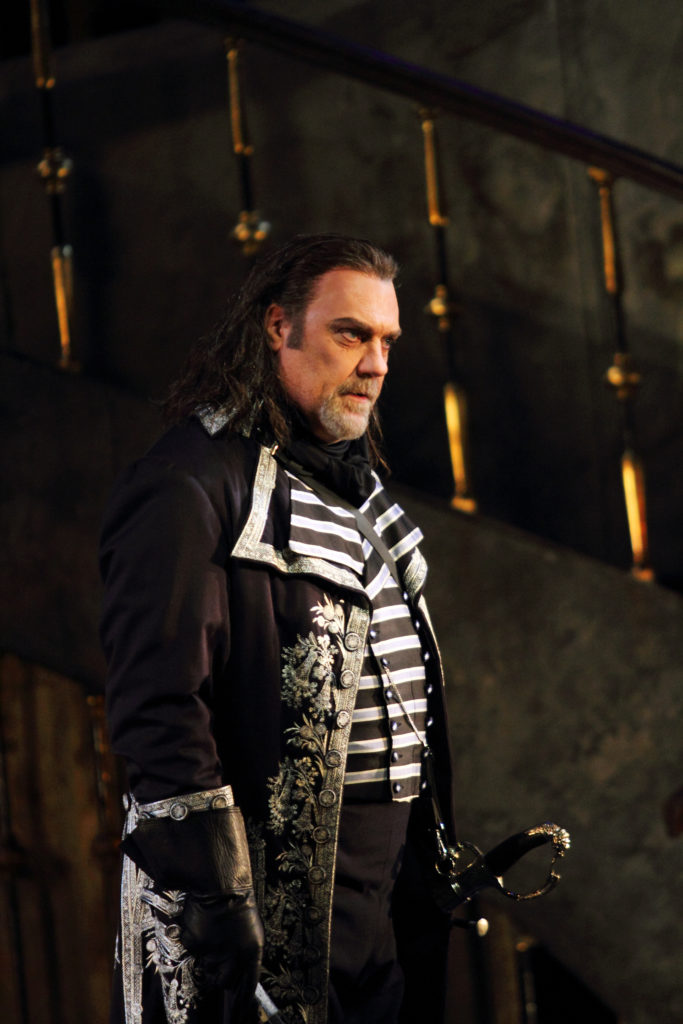
Kristine Opolais as Tosca, ROH 2019, Photo by Catherine Ashmore
In a Place of Tears
Review of Tosca, melodrama in three acts, music by Giacomo Puccini, libretto by Giuseppe Giacosa and Luigi Illica, conducted by Alexander Joel, directed by Jonathan Kent, Royal Opera, 27th May 2019, reviewed by Leslie Jones
In Andrea Chénier, in the duet Vicino a te s’acqueta, composer Umberto Giordano and his librettist Luigi Illica depict death “as the apotheosis or triumph of love” (see ‘Reign of Tenor’, QR, 20th May 2019). But in Tosca, to quote the judge in Brian De Palma’s film Carlito’s Way, “there is no…absolution or benediction” here. Eros and Thanatos commingle. But it is hatred that turns Scarpia on and he offers Floria Tosca a life, that of Cavaradossi, in exchange for “a moment”, a euphemism for sex.
Bryn Terfel, as Baron Scarpia, has a powerful physical presence, almost as overpowering as the monumental statuary in his apartment. Every member of the cast freezes when he first enters the church. He put in a commanding vocal performance but his acting skills were not commensurate. We preferred Marco Vratogna’s more subtle depiction of Scarpia in a previous production (see ‘Praying Mantis’, QR, February 21, 2018).
Chaplain Melanie Marshall disputes the prevalent view that Puccini “was not a practising Catholic” (‘When in Rome’, Official Programme). Yet in later life, although Puccini drove his partner Elvira to mass, he pointedly did not participate himself. Religious bigotry and false piety, to state the obvious, are recurrent themes in Tosca. The Sacrisan, Samoan bass baritone Jonathan Lemalu, is happy to earn an indulgence. He attributes the attendance in church of the Marchesa Attavanti to religious devotion. In reality, she has been hiding a disguise there for her brother, Cesare Angelotti (Michael Mofidian), the former Consul of the Roman Republic, now a political fugitive. Scarpia, a sadist, is evidently devout but as Cavaradossi (Vittorio Grigòlo) points out, he exploits information gained in confessions “as refinements for his libertine lust”. Ms Marshall is also blind to the sacrilegious elements in the libretto, as when Tosca lays out Scarpia’s dead body in a parody of a religious rite.
Latvian soprano Kristine Opolais, as Tosca, gave a towering, stand out performance. She made us forget God!

Bryn Terfel as Scarpia, ROH 2019, Photo by Catherine Ashmore










